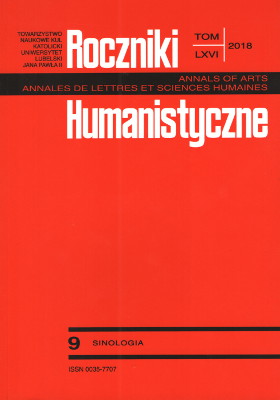The Chinese Folk Model of the Mental Concept of “Soul”: A Linguistic Perspective
The Chinese Folk Model of the Mental Concept of “Soul”: A Linguistic Perspective
Author(s): Joanna Hryniewska, Arkadiusz Gut, Michał WilczewskiSubject(s): Philosophy, Language studies, Language and Literature Studies, Theoretical Linguistics, Non-European Philosophy, Semantics, East Asian Philosophy
Published by: Towarzystwo Naukowe KUL & Katolicki Uniwersytet Lubelski Jana Pawła II
Keywords: Chinese language; folk intuitions; mental concepts; soul; mind; mind–body holist position; weak mind–body dualism
Summary/Abstract: The paper focuses on specific intuitions associated with mental concepts—especially with the concept of the soul in Mandarin. The main objective is to seek the basic linguistic meanings that shape folk intuitions about the mental space in Chinese culture through a linguistic analysis performed on the selected data from modern Chinese language dictionaries, authentic language corpora, and literary works. First, we briefly describe the phenomenon of high-level synonymy in Chinese language, including terms for describing mental concepts. Next, we discuss the linguistic realizations of the concept of the mind as it is presumed to be interrelated with the concept of the soul. Then, we present a linguistic analysis of terms used to talk about the soul in Mandarin to show how the concept of the soul is reflected in this language. The analysis allowed us to demarcate the semantic boundaries of the “soul.” We found that the Chinese folk model of this concept distinguishes between two main conceptualizations: (1) the “soul” as an invisible and immaterial part of living creatures, which is not bound permanently to the body, and as a seat of emotions and thoughts, and (2) the “soul” as a quasi-independent spiritual being that shows much creative potential and is able to persist after the physical death of a person or animal. Although we found a tendency to separate the “soul” from the “body”, the “soul” is still functionally conceptualized in relation to the “body.” Accordingly, we provided linguistic evidence supporting the arguments against the radical mind–body dualist position and for the sake of the weak mind–body holism.
Journal: Roczniki Humanistyczne
- Issue Year: 66/2018
- Issue No: 9
- Page Range: 195-216
- Page Count: 22
- Language: Polish

